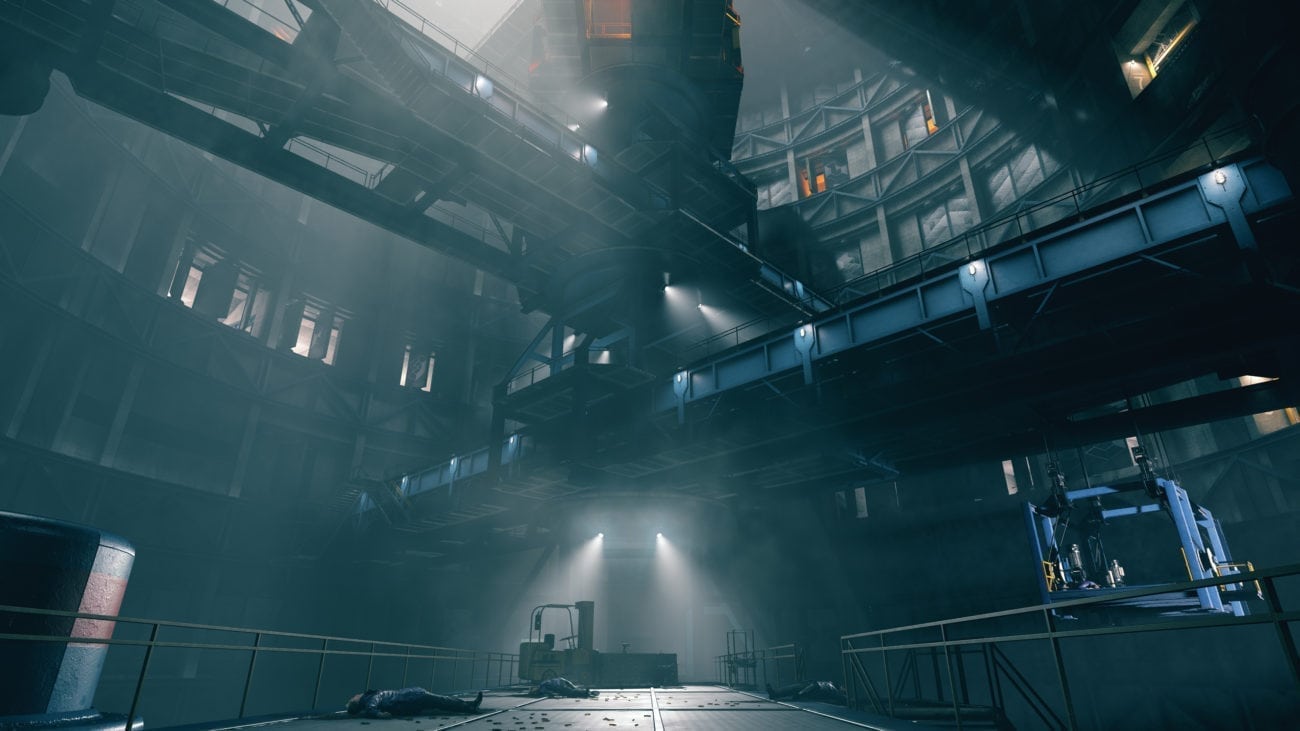To celebrate the tenth anniversary of the site, we ran a competition with prizes kindly donated by Remedy. There were three categories that fans could enter for a chance to win a money-can't-buy Control camping mug; fan art, article, and cosplay. Our winning writer was Lindsey Stark whose incredible article about Control reflected on how 2020 might have changed how fans could see the game. Their article looked at productivity and surveillance both at the bureau and for remote workers. You can read her full article below...
Control makes excellent thematic use of the concepts of liminality and surveillance. The FBC takes the idea of a liminal space and makes it quite literal; the Oldest House is in a permanent state of transition, its halls, offices, and bathrooms constantly shifting, creating chaos for the employees there. This serves as what was once a hyper-absurd critique of bureaucracy and at-any-cost capitalism. Posters sternly declare that overtime will not be paid for any hours lost due to house shifts, and documents scattered throughout the FBC are notably bickering about the budget allocated to different departments.
 |
| Posters that players can find in the FBC. (Source: Remedy Store) |
I think that this reached a new level of relevance during the COVID-19 pandemic. Has capitalism always been this way? Absolutely. Any functional society would make all allowances for surviving a deadly infectious disease ripping through the entire planet, but the United States chose a different tactic, one of profit and loss. Their attitude is so closely aligned with the FBCs that it would be laughable if it weren’t so damaging. Like the Oldest House’s literal, physical foundations constantly shifting, the American worker’s foundation has been unmoored and built on sand for many decades, a fact that COVID-19 cast an ugly light on. The FBC’s overtime posters feel a little different than they did the first time I played it.
The other thing about Control that hits harder now than when I first played it is emptiness. Who among us in the U.S. doesn’t remember our first trip to a grocery store during the Great Toilet Paper Shortage of 2020? I’ll never forget wandering the aisles, seeing entire shelves cleared of canned goods, pasta, and cleaning supplies, meeting the eyes of people who were also there for the first time and shrugging helplessly at one another. Walking around an empty downtown law firm that was unceremoniously abandoned two years ago helps one to imagine what Jesse Faden feels walking through the halls of the FBC.
 |
| The Panopticon. |
Control is a fantastic game in many respects. Its gameplay is a perfect complement to its storytelling, and its characters, graphics, and immersion are at the peak of quality that players have come to expect from Remedy Games over the years. But all great art is at the mercy of its audience. Control is scary, and it’s also a deeply, wryly funny game. The last two years have just made that humor a little darker.



























